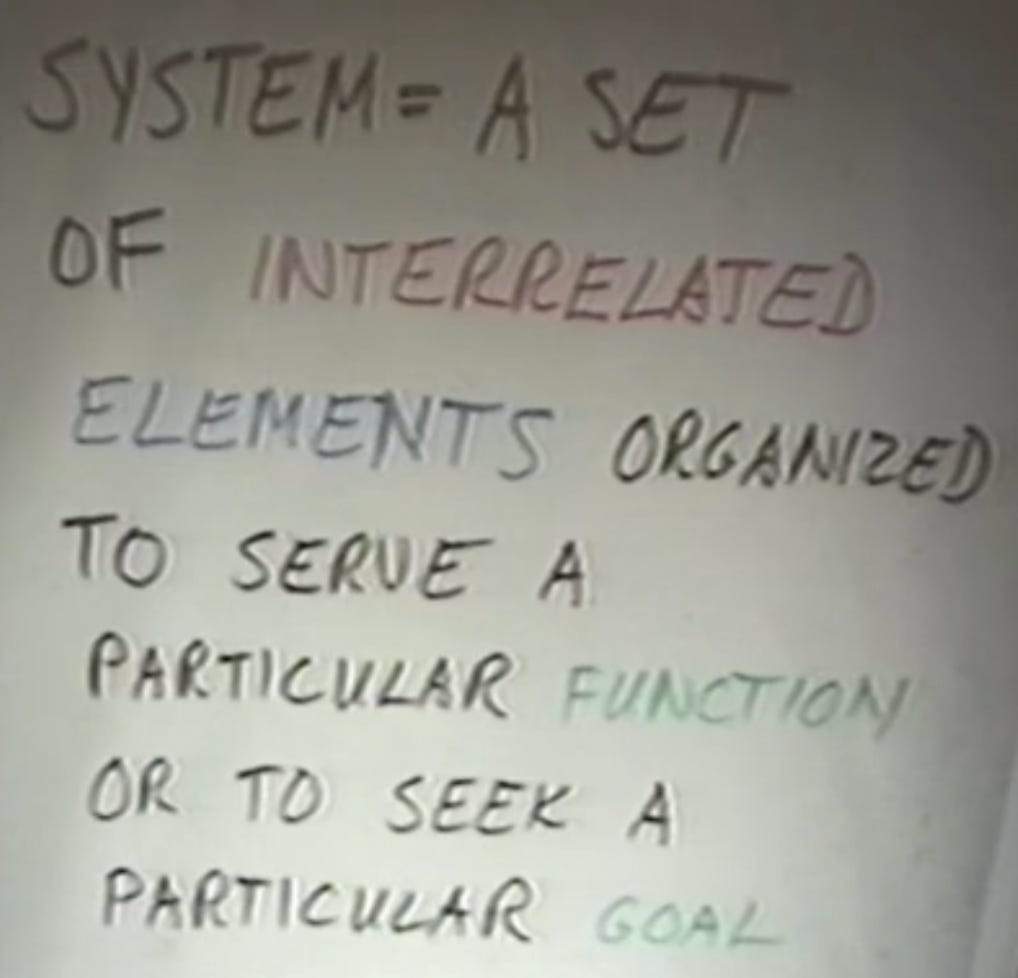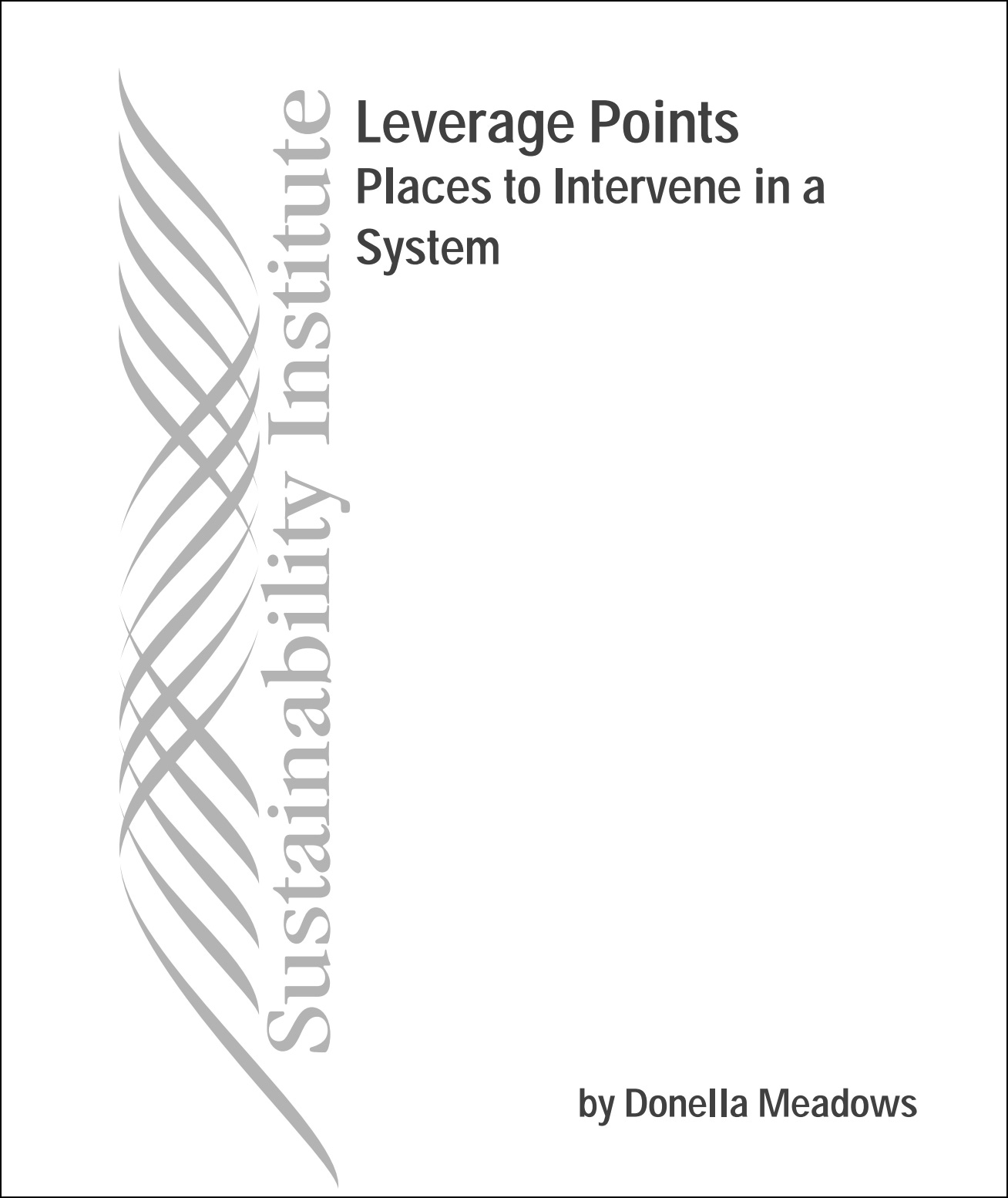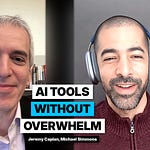Video Source: Donella Meadows 1999 lecture at the University of Michigan
Author Note: This post builds on the last post, which was about paradigm shifts.
Quick Summary: The highest leverage point to intervene in a system is almost always NOT to change the goal, the relationships, the information flows, or the players. Rather, the highest leverage point is often to shift the paradigm. This applies to your own developmental growth, your family, your company, and every other system. Learning about the power that shifting paradigms has is a big reason that I became curious to learn more about paradigms.
Paid Subscriber Benefit: Get access to my cheat sheet of useful and universal principles of all systems along with access to my systems theory GPT bot (pre-loaded with the best resources on systems theory) so you can ask questions.
Every day, we interact with systems without even realizing it. And those systems steer the direction of our life. Yet, most people haven’t ever studied the dynamics of how systems actually work. This is like sailing a ship into uncharted waters without a compass or a map.
One of the big benefits of studying systems theory is that complex, adaptive systems have leverage points—points where a small shift in one thing can produce big change elsewhere in the system. Finding these leverage points can help us to make a big impact, achieve big things, or shift our internal states.
Hence the quote:
Give me a lever long enough and a fulcrum on which to place it, and I shall move the world.
Archimedes, Greek Philosopher
I heard about the importance of systems theory while I was in college, but I struggled to grasp it for years. It wasn’t until I came across the work of the late Donella Meadows that I finally understood it. Meadows was a Dartmouth researcher, an incredible explainer, and a pioneer of the systems theory field.
This book, specifically, is the one that really helped get my first footholds…
In the video clip above, Meadows breaks down the highest leverage points for intervening in systems into an ordered list.
To understand the significance of Meadow’s Leverage Points in the context of systems, we must first understand…
We’re Surrounded By And Part Of Systems. We Are A System.
"Man did not weave the web of life, he is merely a strand in it. Whatever he does to the web, he does to himself.”
—Chief Seattle
"Ultimately, deep ecological awareness is spiritual awareness. When the concept of the human spirit is understood as the mode of consciousness in which the individual feels a sense of belonging, of connectedness to the cosmos as a whole, it becomes clear that ecological awareness is spiritual in its deepest essence."
—Fritjof Capra
Below are just a few of the systems we directly interact with on a daily basis:
Our Own Body: The most personal and direct system we interact with is our own body. It is a complex system of systems—the nervous system, cardiovascular system, digestive system, and more. These systems work in harmony to maintain our health, knowledge, skills, abilities, and emotional well-being.
Personal Routine and Habits: Our daily routines and habits form a personal system. This includes our sleep patterns, eating habits, exercise routines, and personal hygiene practices. These routines directly affect our physical and mental health.
Family and Household Systems: This includes the dynamics and routines within our household or family. It encompasses interpersonal relationships, shared responsibilities, and resource management within the home.
Network of Friends System: This system is composed of your personal relationships with friends, which provide emotional support, social interaction, and opportunities for shared activities.
Local Community System: The local community system encompasses the social, cultural, and infrastructural aspects of the area you live in. It includes interactions with neighbors, participation in local events, and the use of community resources like parks and libraries, all of which significantly shape your daily life and sense of belonging.
Technological Systems: Personal devices like smartphones, computers, and smart home devices. These systems affect how we communicate, work, and entertain ourselves. They also include personal data management and security systems.
Work or Educational Systems: The structures and routines associated with our work or education. This includes the organizational culture, workflow processes, team dynamics, and learning environments.
From there, we are involved more broadly in economic, healthcare, environmental, political, legal, and cultural systems.
With this understanding of the ever-presence of systems, we can see that it would be helpful to understand that even though systems are different, there are universal and useful properties that we should all know about systems.
This is why it’s valuable to study systems theory…
Definition Of A System
A system is a set of interrelated elements organized to serve a particular function or to seek a particular goal.
—Donella Meadows
The 6 Leverage Points Overview

According to Meadows, some ways to intervene in a system are higher leverage than others. She creates the following hierarchy of ways to intervene in a system, starting with the highest leverage at the top:
Paradigm. “And the more I think about it, the more I think that the progenitor of systems is is mindsets, is worldviews, is paradigms, whatever you want to call it. You get it. If you get how we are interrelated with the environment, and that all of the throughputs that run our lives come from the environment, go back to the environment and that we cannot be out of balance.”
Function Or Goal. “The function or goal is sometimes not at all what the system or people in it would say it is doing, but it is the result that is clearly being produced every time you see that system.”
Interrelationships. “They are what we call the structure of the system. They are what holds it together. They're the rules of the game. They are the rewards and punishments. The prices. The information signals.” “You can often change the behavior of a system massively, just by changing the way information flows within it, or what information is available to whom.”
Elements. “The elements are the things, the people, the factories, the physical stuff that you can count and measure and see.” “Fire somebody and put in somebody else in their place. Rarely, if you've not done anything here [with function or interrelationships] will that [changing the elements] make a difference.”
Behaviors. “All of this [function, interrelationships, and elements] produces the behavior of the system, which is its behavior. It's its general tendency over time.”
Events. “If you freeze the system at any one point, it's doing something, which is an event. This is what we see in the news at night. It's sort of one snippet of the behavior of a system. And one of the problems with the news at night is it focuses on events, or at the most, it gets up to elements and characters and personalities and things. It gives us virtually no understanding of the long-time behavior of systems or why they're doing what they're doing.”
How I Applied The Leverage Points Model To My Own Life
More than anything else, understanding leverage points convinced me to devote hundreds of hours to deeply understand paradigm shifts theoretically and then practically. To…
See them all across my own life and in the world
Predict them in advance
Navigate them
As I explain in Paradigm Shift: Master One Of The Top 10 Mental Models I Have Ever Learned, understanding paradigm shifts changed my life, particularly in my own personal developmental growth journey.
Further Reading From Meadows On Leverage Points
Later, in 1999, after Meadows delivered her lecture at the University Of Michigan, she wrote an in-depth article that went deeper into leverage points in systems, and I highly recommend it.













